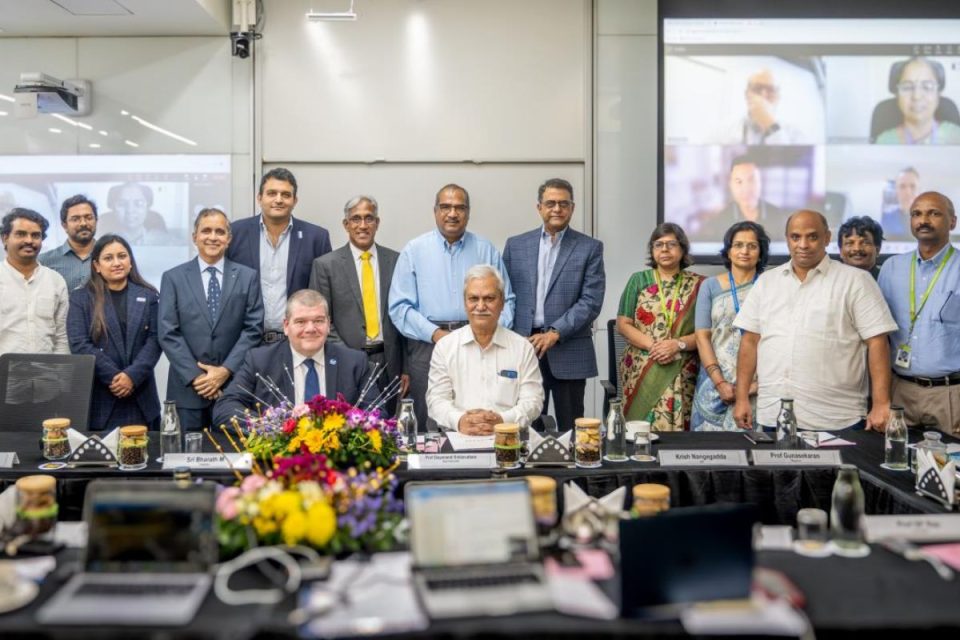Coventry University forms partnership with Gandhi Institute of Technology and Management

Coventry University, in a significant move to bolster international collaboration, has forged a partnership with the Gandhi Institute of Technology and Management (GITAM) in India. This alliance, formalised through a Memorandum of Understanding (MoU), aims to explore and expand their research capabilities.
Central to this MoU is the pursuit of joint research endeavours, collaborative funding initiatives, faculty development programmes, student exchange schemes, and various joint academic activities. This agreement marks a strategic international alliance for Coventry University, further strengthening its global presence.
In a testament to its commitment to international education and collaboration, Coventry University is set to inaugurate its latest Global Hub in New Delhi, India, in the upcoming year. This expansion is part of the university’s broader strategy, which includes a network of five Global Hubs located in Africa, Dubai, China, Brussels, and Singapore. These hubs are instrumental in fostering collaborations with universities, governments, and businesses worldwide, underscoring Coventry University’s role as a global educational leader.
Coventry University’s Deputy Vice-Chancellor for Research, Professor Richard Dashwood, said:
“We are delighted to be working with the Gandhi Institute of Technology and Management as we have recently announced our India Hub and want to identify and work with recognised universities in India for research and development.”
GITAM is on a strategic path to augment its research capabilities, and the Memorandum of Understanding (MoU) with Coventry University is a testament to this commitment. This collaboration is set to amplify GITAM’s research footprint through a series of concerted efforts, including collaborative research projects, joint academic publications, and the exchange of students and faculty for research and development initiatives.
The partnership enables both GITAM and Coventry University to leverage their strengths by jointly applying for grants in their mutually identified areas of focus. This initiative not only fosters academic growth but also promotes a dynamic exchange of ideas and resources, positioning both institutions at the forefront of innovative research and development.
Dr KNS Acharya, Pro-Vice-Chancellor at GITAM, said:
“We truly believe in developing global partnerships to enhance research focus in the areas of mutual interest. Coventry University will be a strategic and collaborator of choice university as there is significant areas of mutual interest. There are five research themes where we see strong complementary areas of Interest. The teams of researchers on both sides have put in significant effort over the last three months to identify common areas of research to focus on.”
Under the new agreement, Coventry University and GITAM will explore and develop potential collaborative ventures across a broad spectrum of disciplines. These include agroecology, water and sustainability, future transport, autonomous systems and engineering, healthcare and life sciences, business, arts, as well as virtual and mixed realities.
The signing of this pivotal agreement was hosted at GITAM’s Vizag campus in India, where GITAM’s Vice-Chancellor and President welcomed key members of Coventry University’s team. This included Professor Carl Perrin, CEO of the Institute for Clean Growth and Future Mobility, and Professor Rohit Bhagat, Director of the Research Centre for E-Mobility and Clean Growth. They were joined by Leena Kukreja, Regional Managing Director of Coventry University’s India Hub, to formalise the partnership.
Adding significance to the event, the British Deputy High Commissioner to Hyderabad, Gareth Wynn Owen, participated virtually in the MoU signing ceremony. His presence underscored the importance of the agreement in bolstering UK-India educational and research collaboration, marking a significant step forward in the relationship between the two nations in these sectors.



